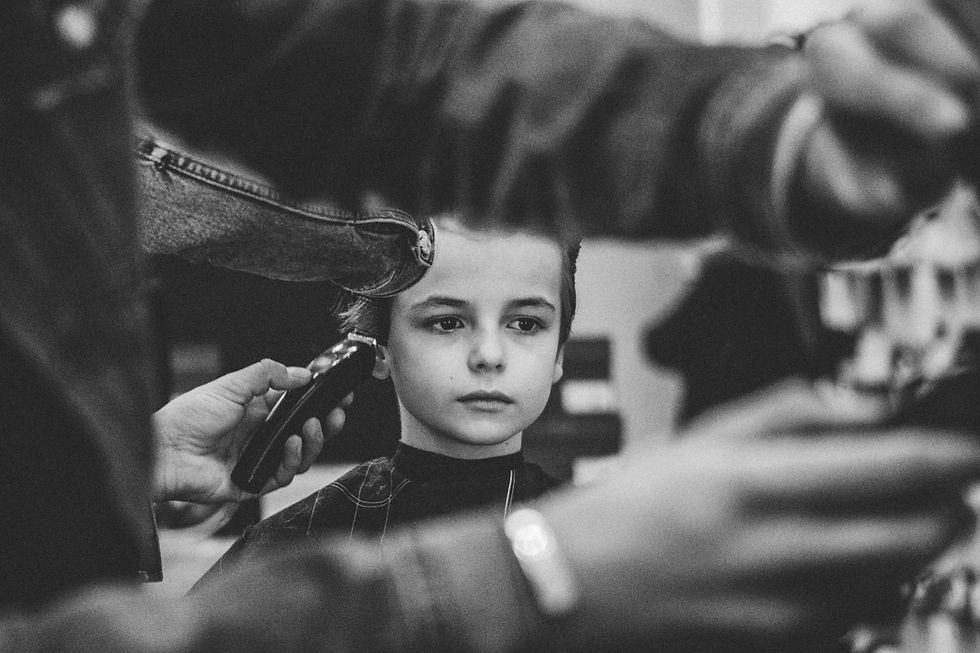How Can I Help My Shy Child?
- Payton Johnson

- Sep 22, 2023
- 7 min read
Updated: Oct 4, 2023

Being very shy can have a massive impact on a child's mental health. That is why when we met with and heard the story of our Guest Blogger today we knew that we wanted to feature it. While our blogger has chosen to remain anonymous their story is one that will resonate with a lot of shy children, and give their parents some insight into what their shy child might be thinking and feeling as they navigate the world.
There is still one girl who I distinctly remember from elementary school. When I close my eyes I can still picture her. I was not jealous of her friends. I was not jealous of her looks or her grades. I was deeply jealous of the ease at which she spoke her mind. When she had a question, she asked it. When she had a thought, she said it. If she had to go to the bathroom, she interrupted the teacher and asked to go. It was almost unfathomable to me that some people were able to express themselves like that. You see, many people describe shyness as an endearing trait in children. They think it’s cute when a kid's cheeks flush and they relish in breaking that child out of “their shell." Shyness to me did not feel cute, it felt like a huge barrier.
Most of my thoughts lived on the tip of my tongue as a kid. If I had to describe being shy in one word it would be frustrating. It is frustrating to almost pee yourself because you’re too shy to interrupt class and ask to leave. It is frustrating to know the right answers and watch your classmates get the praise time and time again. It is frustrating for your peers to think that you are standoffish, weird, or worst of all, rude. I found it to be the most frustrating when I thought of a joke or a story that I knew was going to make people laugh but it felt trapped behind my teeth. The whole experience of being painfully shy is a lot for a young child to navigate; especially in a world where everyone loves to talk.

To this day the words “We are going to go around the class” sends a shiver down my spine. I think if you asked any shy kid what they hate the most it may just be icebreakers and class participation. What is supposed to be a fun way to get to know your peers is a nightmare for an incredibly shy child. If I think back to sitting in those cold school desks under those fluorescent lights I can remember the feeling of the icebreaker slowly inching its way to me. Anxiety would flood my body and I would run my answer over again and again in my head never listening to a thing my classmates said.
Then when it did finally get to me my cheeks would get red and my voice would crack when I spoke. I couldn’t make eye contact with anyone else in the class because I was so nervous so I would just stare at the ground. Then I would say my very rehearsed answer as quickly as possible so that everyone would move on. I didn’t want any follow-up questions, I didn’t want any reaction at all. All I wanted was to not be in that room with all of those people staring at me. Then when it was all over you may think I was relieved. I was but I was also thinking about how weird my classmates must think I am and it would be something I analyzed for the rest of the day. Being very shy can have a huge impact on a child’s mental health. I often felt anxious in social situations and then felt discouraged that I couldn’t just “get over it” and “be a normal person.”

Not only does being shy impact a child’s mental health, but it could also impact their grades. I think I’ve probably asked 5 questions in class during my entire K-college career. It’s not that I knew what I was doing all of the time. But that the idea of doing an incorrect assignment was much more appealing to me than raising my hand and asking for help in front of the whole class. I can remember sitting in class countless times and staring down at an assignment praying that someone who was more outspoken would be confused in the same way that I was.
I always figured it out and my grades were excellent, however, I put a lot of unnecessary stress and pressure on myself to teach myself entirely new concepts when I could have just spoken up and asked for help. Like clockwork, my parents were told that I was “a pleasure to have in class” on every single report card. Nothing more, nothing less. I always thought that comment was so funny to see because how much pleasure did they really get out of the quiet girl who sat in the corner?
When I was approached to do this guest blog they asked me to come up with advice for parents who are raising a shy child. This is a tricky one for me to answer because truly the only thing that ever helped me was putting myself out there. I found out that if I intentionally put myself in a situation where it was pretty much sink or swim I was able to overcome my shyness for a moment and share my ideas. So I just started signing up for stuff. It was in school clubs, after-school activities, and later on in college Greek Life where I was able to really connect with my peers. These experiences have compounded on each other and have made me a way less shy person overall.

However, the absolute last piece of advice that I would give to parents of a shy child is to put them in those sink or swim situations out of nowhere. My parents were and are my safety net. They recognized when I was uncomfortable and they would adjust the situation if they could. Be there for your shy child, pick up on their triggers. If they always stammer their words when they are feeling uncomfortable, swoop in and redirect the conversation to give them a moment to collect themselves. If they come home upset or anxious about a social event, listen to them and validate that so many people in this world feel that way. It is important that they feel like you are on their team, especially in a social setting. They already feel embarrassed, they don’t need you to say things like “Aww, someone is quiet today."
Tell them that you think they are funny, intelligent, and kind all the time. Let them know that they are a person worth listening to. When they talk, give them your attention, when they tell a joke, laugh, when they tell a story ask questions. Make them feel great and praised for speaking their minds. Get them used to people looking at them as they are speaking but in a safe environment for them. Let them be their true authentic self at home so that they can fully develop their personality because it is so hard to do so when you are really shy.
What you can do is encourage opportunities where they can interact with smaller groups of their peers, particularly peers with similar interests. If they love to draw, find a drawing class. If they love to run, ask them if they would want to look into track. They will hate the idea of being in an unnecessary social setting but if you are able to connect it to one of their interests you may get them to bite. Gently nudge them to be social with their peers, but do not push them.

Once they get that taste of what it feels like to make a friend laugh, or for an authority figure to praise them for their ideas or their talent; it’s almost addictive. In my experience, the act of being outspoken was a liberating feeling. When I did have those moments where I pushed myself to say what was on my mind I wanted to do it again and again. I even started running for leadership positions in every club I was in because I was able to connect with and feel close to that group of peers. I have never been prouder of myself than the time that I ran for Treasurer of my Student Council and made a speech on the TV to our entire school. I did not win Treasurer (and thank god I absolutely hate math, I don’t know what I was thinking) but I did run for and win leadership positions in just about every other club I’ve been in and I am very proud of myself for that.
I can imagine that it is also frustrating to raise a shy child. I am sure that you see how fantastic and lovely your child is and you just want the rest of the world to see it too. Trust me, they will. With your unwavering love and support, your child will find the people and the friends that they can be themselves with. They will pick up social skills along the way in the journey of life and they will only get more and more comfortable with the person that they are. You are a crucial step in making sure that happens. If you continue to build them up and up they will take it from there.





